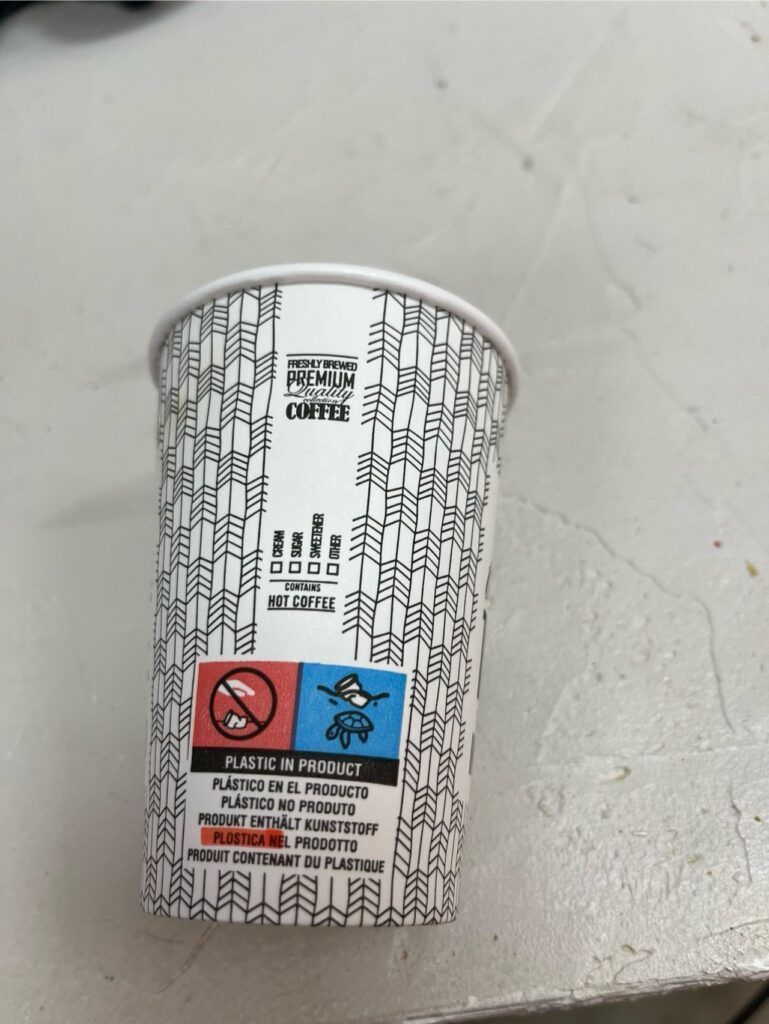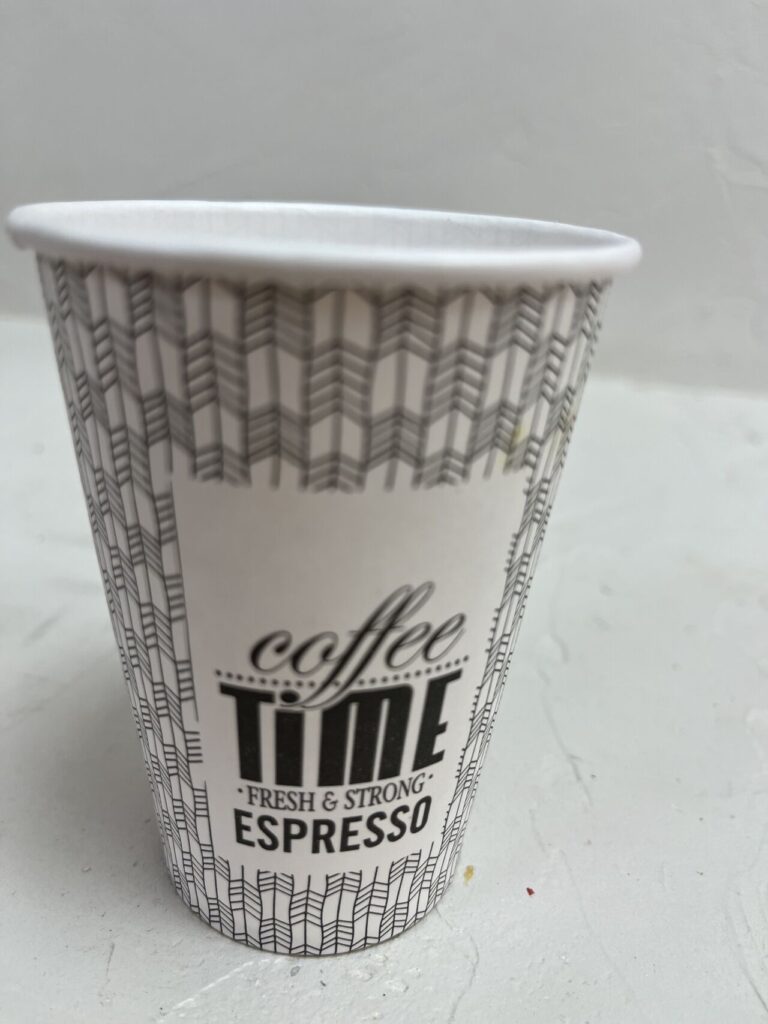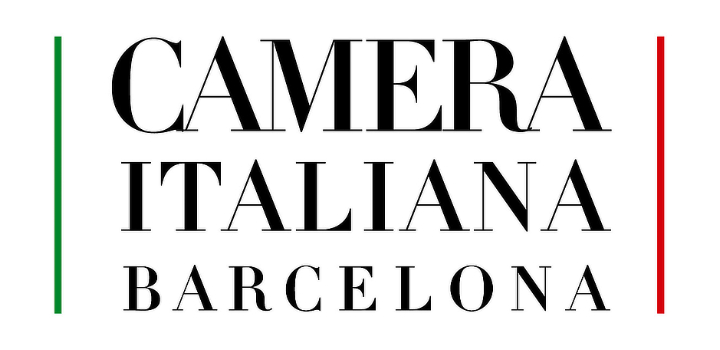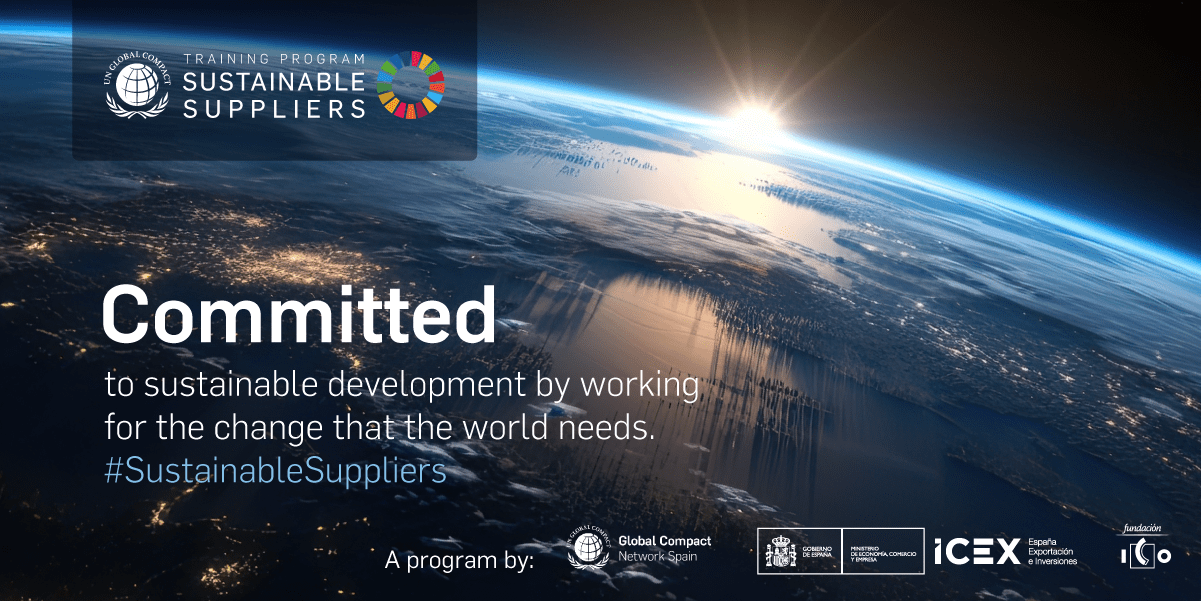Imagine you are in a café, with your favourite drink in your hands, and you look at the paper cup being served to you. On it you read a word that puzzles you: ‘Plostica’. A typo? No, it looks like a translation error. Yet this is something that can happen even in professional translations, with consequences that are often not sufficiently thought through.
We are used to thinking that a translation is just a matter of words, but it is actually much more: it is about our image, our brand, our reputation. And when we talk about corporate translations, accuracy is crucial. In this post, we will explore a curious and, in some ways, symbolic case of how a translation error – like the one you might find on a cup that says ‘Plostica’ instead of ‘Plastica’ – may seem insignificant, but in reality carries much wider implications.


Why can an incorrect translation cost so dearly?
When deciding whether or not to invest in a professional translation, one of the first pieces of advice we give our clients is to think about how much they are paying for the material on which the translation will be printed. A translation error, no matter how small it may seem, can lead to economic and reputational damage that, in the long run, is much more expensive than the initial cost of a good-quality translation.
Take, for example, the case of a company that orders thousands of paper cups for its take-away coffee, with the word ‘Plastica’ printed on them, but due to a translation error, that writing appears as ‘Plostica’. At first glance, it might seem like a small mistake, easily overlooked. But let me show you how this simple detail can turn into a much bigger problem.
1. Direct economic damage:
Printing thousands of cups with an incorrect translation is not an error that can be easily corrected. Imagine the cost of redoing the process again. The price of printing new cups is certainly higher than the cost of an accurate translation, had it been done in the first place. And we are not just talking about a single print, but an entire production. This is an unnecessary expense that could have been avoided simply by investing in a professional translation from the start.
2. Reputational and image damage:
The greatest damage, however, is reputational. Such an error not only creates confusion among customers, but can also undermine trust in the brand. Think of the message such a mistake can convey: a feeling of carelessness, superficiality, or even a lack of competence in dealing with the international market. In a globalised world where companies compete for consumers’ attention, a small translation error can turn into a huge obstacle to the success of a product or service.
The case of ‘Plostica’ is symbolic of this. It is not just a linguistic error, but a sign of disorganisation. A consumer who notices the error might think that the company does not take enough care of the details, and this might negatively influence their decision to buy the product. And in a market where competition is increasingly fierce, losing even a small group of customers can have a significant impact on sales.
3. The value of professionalism in translation:
The mistake ‘Plostica’ also teaches us the importance of relying on professional translators. A translation is not just a matter of replacing one word with another, but requires in-depth linguistic knowledge, an understanding of cultural nuances and careful attention to detail. An experienced translator not only corrects mistakes, but is also able to adapt the text to the specifics of the target market, ensuring that the message is received correctly.
Relying on non-professional translators or using machine translations may seem like a cheap solution, but in the long run it can turn out to be a much more expensive choice. In fact, translation errors not only affect the quality of the final product, but also compromise the public’s perception of the company and its values.
4. Conclusion: An investment that pays off
Let’s assess how much it would have cost – in terms of both money and time – to correct the error ‘Plostica’ on thousands of paper cups. Probably the cost of a professional translation, which would have avoided the problem in the first place and would have cost less than a coffee. Yet, it is not just a question of immediate savings: it is a question of long-term vision. Investing in a correct translation means protecting one’s reputation, strengthening one’s image and, ultimately, building trust with customers.
In business, every detail counts. And every word, even the smallest, can make the difference between success and failure. Don’t let a translation error, such as ‘Plostica’, ruin your brand. Invest in good-quality translations and you will see the benefits over time.
Remember: sometimes a mistranslation may cost less than a coffee, but the damage it causes can be far greater.
BBLTranslation: Accurate translations for impeccable results
At BBLTranslation, we understand the importance of a perfect translation, not only linguistically, but also technically and graphically. We specialise in translations for the print and design world, working with professional formats such as .idml files, Illustrator and InDesign to ensure that your content is ready for printing without any errors. Each project is treated with the utmost care to avoid inaccuracies and ensure that your promotional material, packaging or any other printed document is perfect in every way.
By relying on us, you can be sure that each translation will not only be linguistically accurate, but also ready for production without any risk of graphic errors. Because every word, every detail, counts when it comes to your reputation.





